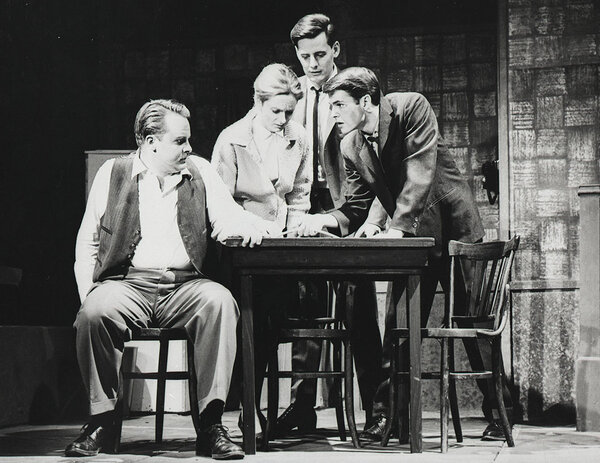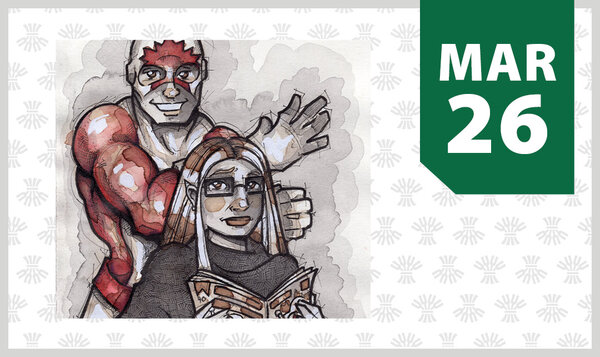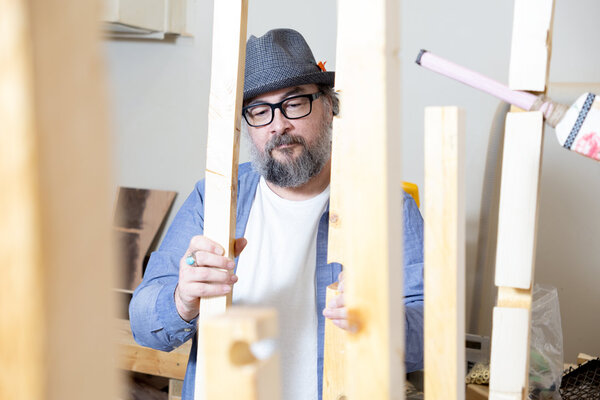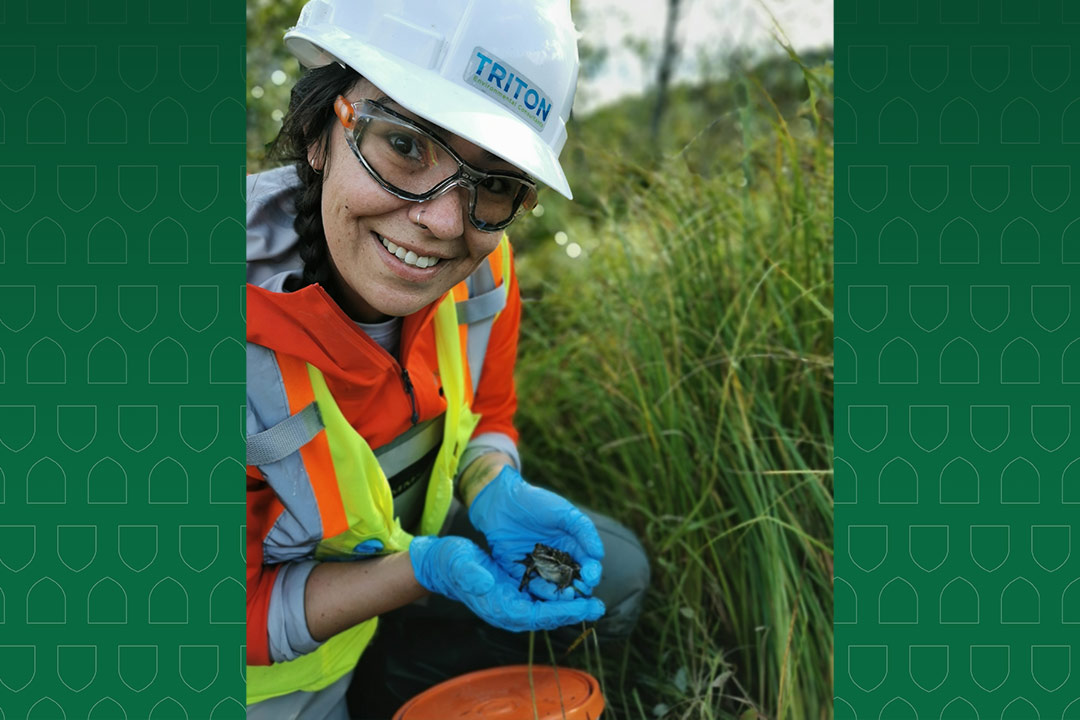
‘Our voices are so important’: USask science graduate inspires the next generation of Indigenous students
Micheala Merasty wants to be a voice for the environment—and a role model for her daughter
By Chris Putnam
When Micheala Merasty crosses the stage on Nov. 9 to receive her University of Saskatchewan (USask) Bachelor of Science degree in environmental biology, no one will be cheering louder than her daughter.
Taylah Merasty is starting her first year of studies in the College of Arts and Science at the same time her mother graduates.
“She fought hard for this and I’m really lucky that I got to experience that, because it makes me want to do school. I guess it influenced me to know that even though it’s hard, you just—you keep going,” said Taylah Merasty.
The inspiration goes both ways. Micheala Merasty sees her daughter as a big part of the reason she’s here.
“I definitely wanted to show her that hard work and determination can really take you places, and that anything is possible. If you want to do something, go for it,” Micheala Merasty said.
Merasty, who is Cree and grew up in Pelican Narrows in Northern Saskatchewan, will graduate with distinction after 10 years of studies. Along the way, she worked numerous jobs, raised her daughter as a single mother and became an advocate for Indigenous participation in the sciences.
800jpg
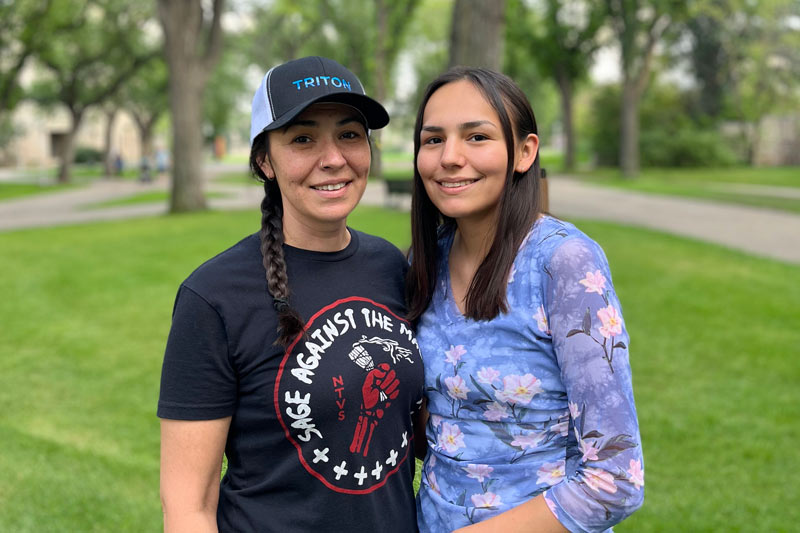
Merasty is already three months into a dream job as a biologist at an environmental consulting company, working to ensure that companies pursuing development projects follow environmental regulations.
“I get to spend all day, every day, outside. I get to work in beautiful places. I get to do the best I can to help whatever species we’re working with. And at the end of the day, I feel good about myself and the work that I did.
“It’s pretty wild. You know, I never thought I’d be this happy so quickly right out of my undergrad. So I feel really blessed, to be honest,” Merasty said.
It’s been a long road getting here. Merasty, who has adult ADHD (attention-deficit/hyperactivity disorder) dropped out of her studies twice before returning to USask for good in 2012. During the past decade, she continued to face doubts, mental health struggles and other challenges.
“Because I had left university before, I kind of always had one foot out the door, thinking that maybe I wasn’t good enough, or dealing with imposter syndrome—that I wasn’t allowed in these spaces or my voice wasn’t important in these spaces,” said Merasty.
Support from family helped carry her through. So did a slate of USask student services.
Merasty was one of the first students to sign up for the College of Arts and Science’s Indigenous Student Achievement Pathways (ISAP) when it launched in 2012. The program, which connects participants with a supportive community of Indigenous students and dedicated instructors, introduced Merasty to many friends she remains close with to this day.
Elders at the Aboriginal Students’ Centre guided Merasty to get in touch with her culture and recognize her own worth. An Indigenous counsellor at the Student Wellness Centre helped her unpack her intergenerational trauma and embrace her gifts.
“I want to encourage any Indigenous students that read this article that there are services there and to access them if they can, because they helped me so much,” Merasty said.
During her studies, Merasty worked to encourage and empower other Indigenous students in the sciences. She co-founded the USask student chapter of the Canadian Indigenous Science and Engineering Society as a way of building connections between students like her across campus.
“Representation matters. By entering academic spaces, we’re actively working against systems that were put in place to silence our voices. Our voices are so important because they haven’t been in these conversations,” she said.
As a student, Merasty dreamed of being a voice for the environment. Now that she is graduating, she plans to spend her career doing just that.
“As an Indigenous person in the sciences, you know, I have an innate connection to the land and the waters, and I feel that that brings a lot more to the table as a scientist. I’m able to bridge traditional ecological knowledge and western scientific knowledge and see the world through a broader lens,” she said.
Merasty’s mother, a residential school survivor, graduated from USask’s College of Education about 30 years ago.
She was the first university graduate in the family. Merasty will be the second.
Taylah Merasty has grown up watching their example.
“Once I graduate, I’ll be a third-generation alumni,” Taylah Merasty said. “And that feels really good, to have those people who are influencing me to live a better life and make a good life for myself.”
